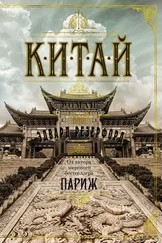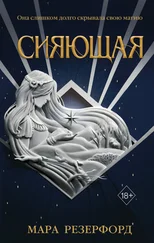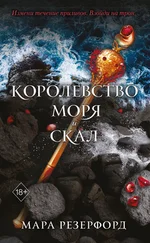‘Kiy doesn’t need you,’ she would tell him, ‘and nor do I if you won’t obey the elder.’ But it was useless. He hated the work in the fields, would disappear for days into the forest without permission – while the villagers muttered about him angrily – and then she would suddenly see his strong, square form come striding back, with a dozen pelts hanging from his belt and his habitual, foolish smile on his face. The elder would curse him and her mother-in-law would look at her with renewed disgust, as if it were her fault.
And now, that day, with complete foolishness he had promised the little boy: ‘Next time I go hunting, Little Kiy, I’m going to bring you a baby bear. You can keep him tied up outside.’
‘But, Mal,’ she reminded him, ‘the elder said you’ll have to leave the village if you disobey him again.’ As a punishment because of his absences, the elder had already forbidden him to go hunting any more that year.
But her brother only bowed his big, fair head, still smiling foolishly, and said nothing.
‘Why don’t you take a wife and stop this nonsense?’ she shouted at him, wretched.
‘As you command, Sister Lebed.’ He bowed his head, grinning.
He said it to exasperate her for almost no one in the village was addressed by their full name. The little boy, whose name was Kiy, was usually called by a diminutive, Little Kiy. Her own full name, Lebed, was seldom used. Since childhood she had always been known by an affectionate nickname – Little Swan. Mal had a nickname too, which people used when they were angry with him – they called him Lazy-bones.
‘Lazy-bones!’ she countered angrily. ‘Settle down and work.’
But Mal would never do that. He preferred to live alone in a small hut with two old men who were no use for anything, nowadays, but a little hunting. The three of them would drink mead together, hunt and fish, while the women treated them with a mocking tolerance.
She had gone to him twice more that day in the fields, the second time in tears, trying to make him forget his stupid plan. Though he brought her nothing but trouble, she loved him. It would be lonely if he were sent away.
And each time, though there were tears in her eyes, he had only grinned at her, the sweat trickling down his big, broad face, as he carted the bales of hay to the stack.
Which was why, at the end of the day, it had taken her a long time to get to sleep; and when at last she had slipped into unconsciousness, her mind had still been full of foreboding.
But now, night had washed her mind to a state of blankness. Under her coarse, plain shirt, her breasts rose and fell regularly. Softly the breeze from the window stirred her thick hair and the fair hair of the child.
Nor did anyone awake when the dog by the doorway sat up expectantly as two shadows glided past. No one, that is, except the little boy, whose eyes briefly opened. A sleepy smile appeared on his face, and had his mother been awake she would have felt the suppressed tremble of excitement go through his body. He closed his eyes again, still smiling.
Soon, he knew.
Softly the wind moved over the land.
But where were the hamlet, the river and the forest?
In order to explain the significance of the magical place, a few words are needed.
Geography, by convention, has long divided the huge landmass of Eurasia into two parts: Europe in the west, Asia in the east. But this convention is misleading. There is, in fact, a more natural division, which is between north and south.
For stretching across this vast landmass, from Northern Europe, across Russia and the frozen wastes of Siberia, all the way to the high grounds above China, that reach north almost to touch Alaska, is the world’s greatest plain.
The mighty north Eurasian plain is over seven thousand miles from west to east. From the Atlantic to the Pacific it stretches, a series of huge, interlocking plates, covering a sixth of Earth’s land surface – the size of the USA and Canada combined. To the north, most of the plain is bounded by the icy Arctic Ocean. From there it descends, sometimes two thousand miles, across huge belts of tundra, forest, steppe and desert to its southern border. And it is this border that may truly be said to divide Eurasia into two.
For if northern Eurasia is a vast plain, southern Eurasia consists of the huge regions, from west to east, of the Middle East, ancient Persia, Afghanistan, India, Mongolia and China. And dividing north from south, like a wall, is the mighty crescent of mountain ranges containing some of the highest summits in the world – from the Alps in western Europe to the mighty Asian Himalayas and beyond.
It is hard to see, therefore, why Eurasia was ever divided by geographers into west and east.
About a third of the way across the great plain, roughly above today’s Afghanistan, there is a long, low, north-south line of ancient hills that reach from the tundra to the desert’s edge. These are the Urals. Modern convention has called these ‘mountains’ and used them to designate the border between Europe and Asia.
Yet in truth, with the exception of a few quite modest peaks, these gently rounded hills often rise only hundreds of feet above the plain. By no stretch of the imagination do they form a continental divide: they form scarcely a ripple on that ocean of land. There is no border between Europe and Asia – the plain is one.
As it sweeps across northern Europe, the plain is quite narrow – only some four hundred miles wide. As it goes further, across eastern Europe, it begins to widen, like a wedge. Its northern border becomes the large, cold gulf of the Baltic Sea, which lies under the curving overhang of Scandinavia. Its southern, mountain border becomes the magnificent Balkan and Carpathian Mountains which guard the north of Greece. And then it opens out.
Russia: where the plain is endless.
Russia: where east and west meet.
Here, at the beginning of Russia, the northern border of the mighty plain starts to sweep up, to the Arctic Sea. In this northern land begins the world’s greatest forest – the cold, dark empire of firs called the taiga , that stretches for thousands of miles to the Pacific shores. In the middle section of the plain is a huge, mixed forest. And in the south begins the endless, grassy steppe land, that leads down, at this point, not to desert or mountain, but to pleasant, sunny sea shores, like those of the Mediterranean.
For the southern border of the Russian heartland is the warm Black Sea.
The Black Sea, lying as it does above the eastern end of the Mediterranean, is rather like a reservoir. The great southern crescent of mountains hold it in like a vast dam: to the south-west, the Balkans of Greece; to the south, the mountains of modern Turkey; to the south-east, the soaring Caucasus Mountains. Between the Balkans and the mountains of Turkey, a narrow channel allows the Black Sea to connect with its greater sister sea. This connecting link is known, at the Black Sea end, as the Bosphorus, and at the southern end as the Dardanelles.
The sea is large – some six hundred miles from west to east and four hundred north to south. It is fed by innumerable rivers including, on its western side above Greece, the stately River Danube. Its waters contain traces of sulphur, which may at some point have caused it to be called ‘Black’.
In the centre of the northern, Russian shore, jutting far out into the sea’s warm waters and shaped like a flat fish, is a broad peninsula. This is the Crimea. On each side of it, nearly four hundred miles apart, two enormous river systems descend across the steppe from the distant forests. On the western side, the broad River Dniepr; on the eastern, the mighty Don.
Between these two river systems therefore, the Dniepr and the Don, and from the steppe above the Black Sea shore all the way up into the northern forests, lies the huge, ancient Russian heartland.
Читать дальше
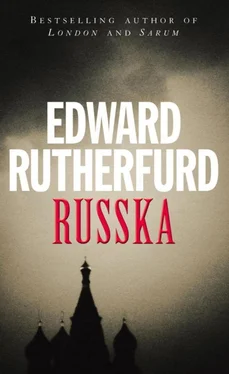
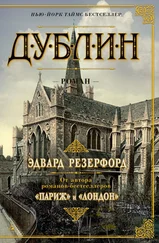
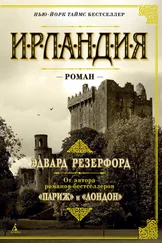
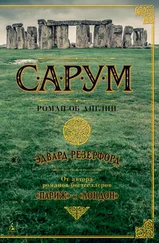
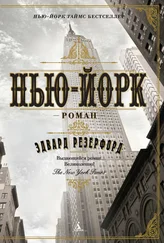
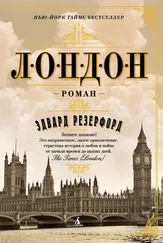
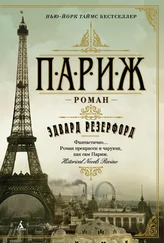
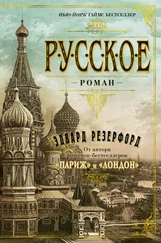
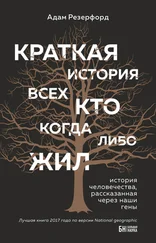
![Эдвард Резерфорд - Королевский лес. Роман об Англии [litres]](/books/422880/edvard-rezerford-korolevskij-les-roman-ob-anglii-thumb.webp)
